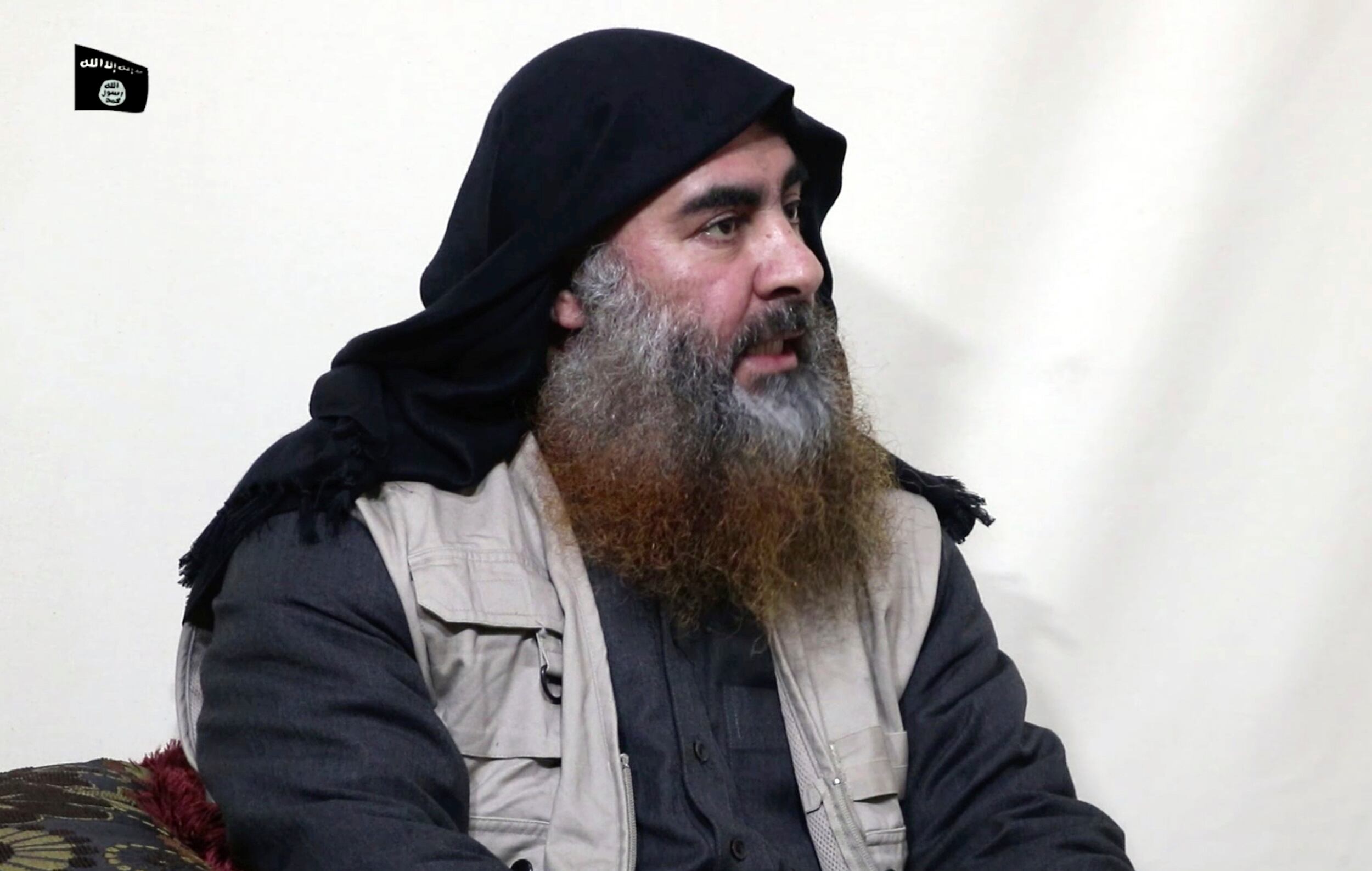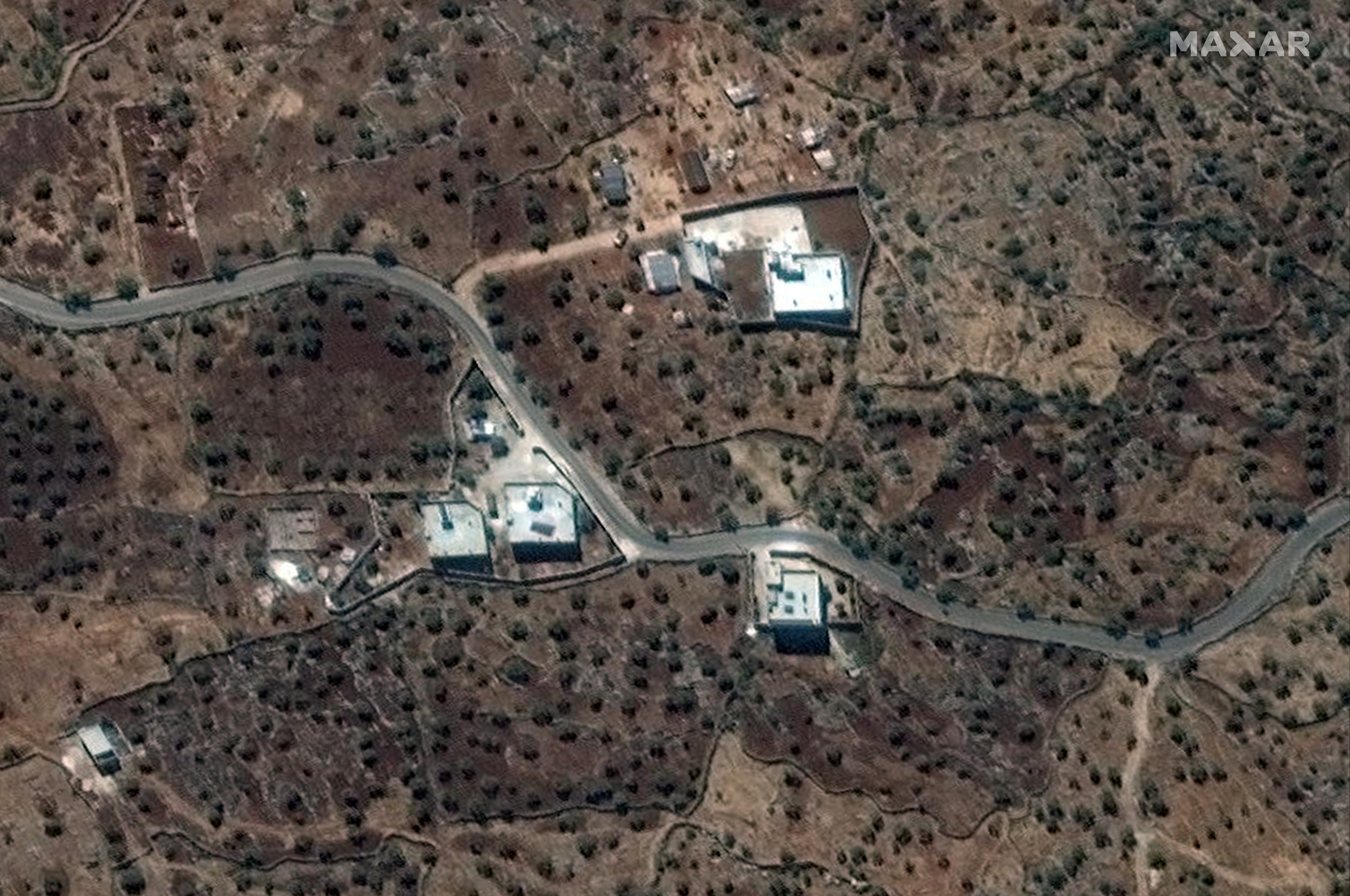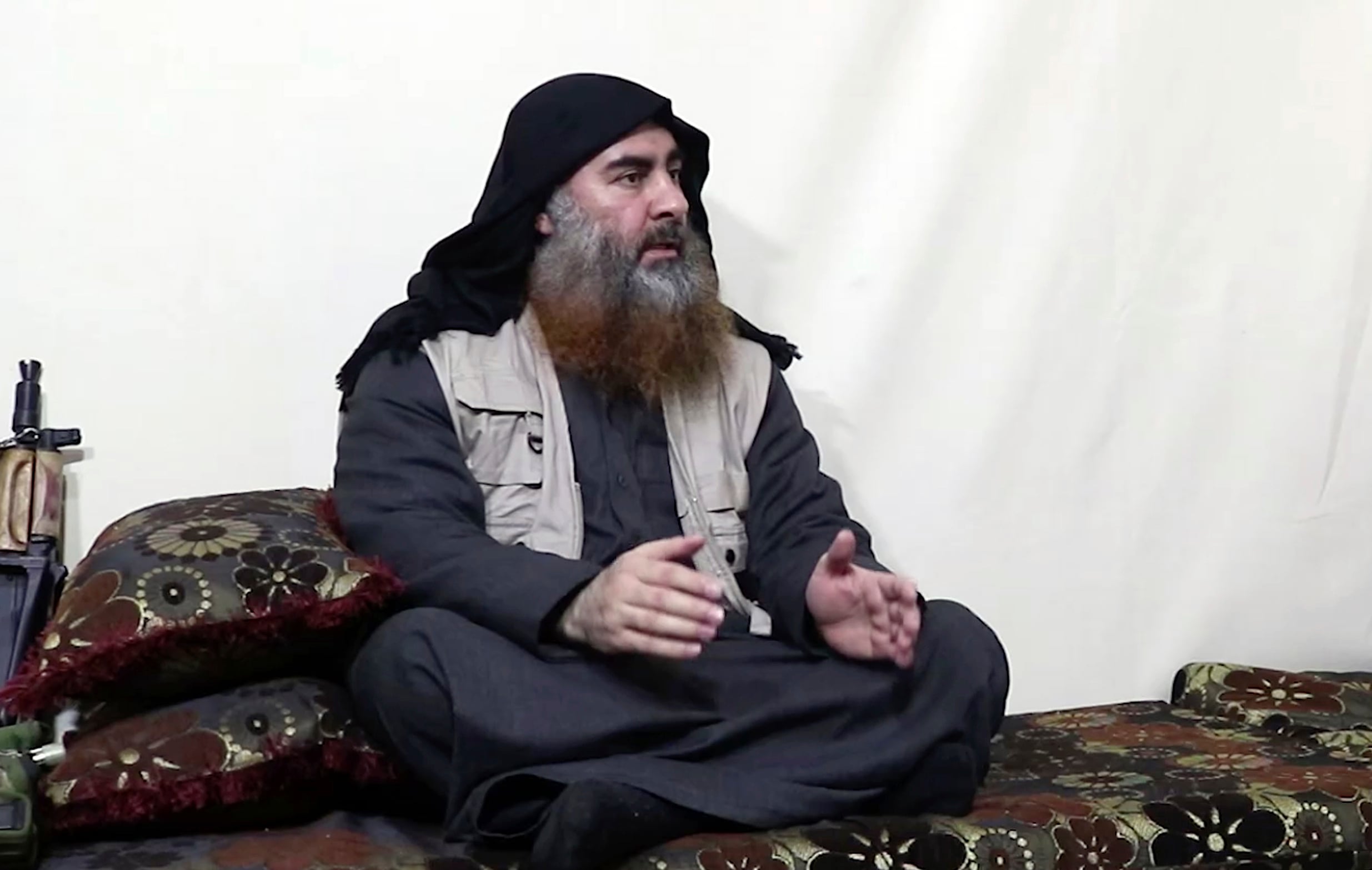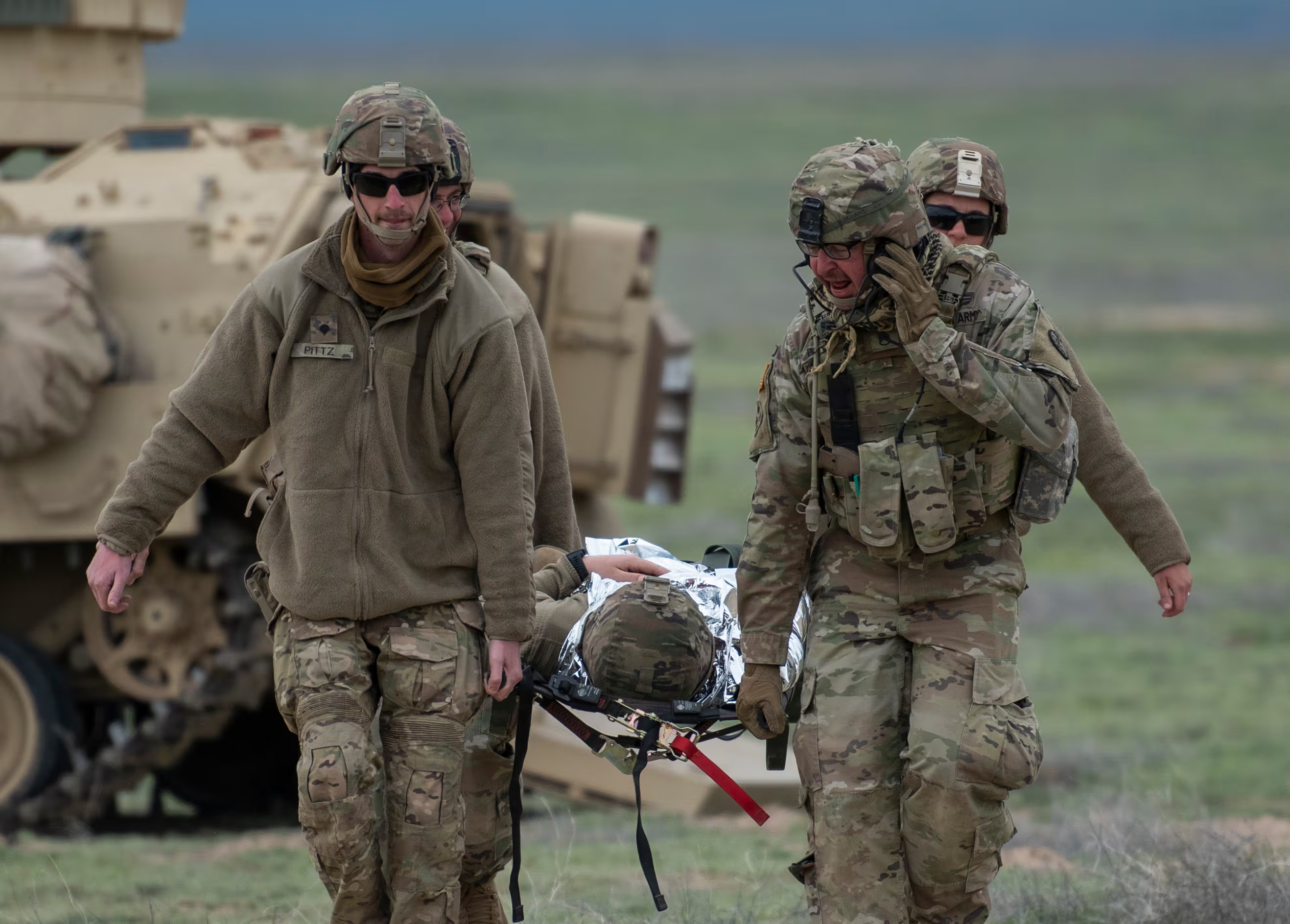President Donald Trump confirmed Sunday that Abu Bakr al-Baghdadi, the elusive leader of the Islamic State, was killed in a U.S. special operations raid launched in Syria.
Trump said during a Sunday morning White House press conference that al-Baghdadi “died like a dog” after being chased down a dead-end tunnel by American commandos and U.S. military canines.
The ISIS leader dragged three children into the tunnel before detonating his suicide vest — killing himself and the kids, Trump said.
Al-Baghdadi’s last moments alive were spent in “panic and dread” as the ISIS leader was “terrified of the American forces bearing down on him," and he died “whimpering and crying and screaming” like a coward, Trump told reporters Sunday.

The American commando raid targeted the ISIS leader in the al-Qaida infested Idlib Province, Syria, near the Barisha area not far from the border with Turkey.
A number of ISIS fighters were killed during the operation.
The Syrian Democratic Forces are reporting the death of a senior al- Bagdadi associate named Abu Hesen al Mouhjir, who they say was targeted in a village named Ein al Baat near Jaraboul city.
Officials from Combined Joint Task Force Operation Inherent Resolve would not confirm that.
“We are aware of SDF reports,” the task force responded via email. “The coalition supports all efforts to disrupt and defeat ISIS senior leadership. For reasons of operational security we have no additional comments.”
How it went down
Trump said at least eight helicopters were involved in the raid and no American troops were wounded. A military working dog that was in the tunnel with al-Baghdadi was injured, he said.
Secretary of Defense Mark Esper said on the ABC Sunday morning show “This Week” that troops were mostly ferried to the objective by CH-47 helicopters and that the ground force consisted of less than 100 troops.
American troops took fire from local forces as they flew to the compound housing the ISIS leader, Trump detailed. American forces “terminated” the threat from the air “immediately,” he said.
The “daring nighttime raid” by American commandos was carried out in “grand style,” Trump said.
While on the ground, American special operators blew holes in the side of the compound — avoiding the main entrance the U.S. commandos knew was booby-trapped, according to Trump.
Esper told ABC that U.S. forces conducted a tactical call-out as a number of women and children were on the objective.
American commandos remained on the target site for roughly two hours gathering valuable intelligence, Trump explained to reporters.

Following the operation, Esper told ABC that U.S. aircraft destroyed the compound after U.S. forces were off the target site.
A source in the region told Military Times that he saw a Delta Force task force launch aircraft from near Ain Issa, Syria, around 2 a.m. local time Friday. Esper said on the ABC Sunday morning show that Trump had green-lighted a heliborne raid on Friday.
RELATED

About a week prior to the operation U.S. forces began rehearsing their actions on the objective, Esper told ABC.
Gen. Mazloum Abdî, the commander of the U.S. anti-ISIS partner force in Syria known as the Syrian Democratic Forces, tweeted Sunday that the raid was a successful and historical “operation due to a joint intelligence work with the United States of America.”
“For five months there has been joint intel cooperation on the ground and accurate monitoring, until we achieved a joint operation to kill Abu Bakir al-Bagdadi,” the SDF commander tweeted.
The Turkish Ministry of Defense said that prior to the operation there was and “information exchange and coordination between the military authorities” of Turkey and the U.S.
CNN reported, citing a U.S. defense official, that Turkey played no role in the operation and that coordination between the two countries was due to that target’s proximity to Turkey’s border.

Trump said Sunday that Turkey was made aware of the raid and that the U.S. consulted with Russia as American forces flew over some areas near where Russian forces were operating.
Trump also said that the SDF had provided some information to U.S. forces regarding the al-Baghdadi operation.
Early Sunday morning, a Defense Department official confirmed to Military Times that it was believed al-Baghdadi was killed in a U.S. commando raid. Military Times later reached out to the Pentagon and Officials with Operation Inherent Resolve — the U.S.-led mission to defeat ISIS in Iraq and Syria — regarding the level of support provided by Turkey and the SDF to the raid that bagged al-Baghdadi and has yet to receive a response.
U.S. forces in Syria were amid a pullout of the region, but Trump decided to keep some troops in eastern Syria to keep oil wells from slipping back into the hands of ISIS.
Trump said the U.S. will continue to pursue ISIS to its “brutal end.” He also said capturing or killing al-Baghdadi was a top national security priority of his administration.
Raid named for a hostage killed by ISIS
The mission was named in honor of humanitarian aid worker Kayla Mueller of Arizona, who was captured and tortured by ISIS in 2013, NSA Director Robert O’Brien said Sunday morning on NBC’s Meet the Press.
In February 2015 it was confirmed that she had died a prisoner of ISIS.
The Islamic State group claimed Mueller was killed in a Jordanian airstrike near Raqqah, the group's self-declared capital in Syria. U.S. officials confirmed the death but not the circumstances.
“One of the great things that (Joint Chiefs Chairman) Gen. (Mark) Milley did was that he named the operation that took down al-Baghdadi after Kayla Mueller, after what she suffered,” O’Brien said on Meet the Press. “And that was something the people should know. But justice was brought to those Americans who were so brutally killed.”
O’Brien said that in his previous position as a hostage envoy, he got to meet Mueller’s family as well as those of other Americans held hostage and brutally beheaded by ISIS, aid worker Abdul-Rahman (Peter) Kassig and journalists James Foley and Steven Sotloff.
Former Army Gen. Joseph Votel, who retired earlier this year after commanding U.S. Central Command, told Military Times the mission marked “an important milestone.
“By any measure this was an important milestone — not just for the campaign but for everyone who was victimized by ISIS under Baghdadi’s leadership,” Votel said in an email. “It is a psychological blow to ISIS and it demonstrates the effort we will go to bring these terrorists to justice.”
However, the lasting effect remains to be seen, said Votel, who is also a former commander of U.S. Special Operations Command.
“We will have to keep pressure on this network. I would expect there is a succession plan and these groups are resilient — we have seen this with many VEOs,” he said. “As I mentioned to Martha Raddatz on ABC this morning — now we have to clarify our strategic objectives going forward and make sure we have the right architecture (troops, resources, relationships, basing, etc) in place to pursue them.”
When asked if reduced U.S. troop levels in the country might hamper future missions against ISIS, Votel said collecting the needed intelligence is still very possible.
“This is why I said it was important to make sure we were very clear about our strategic objectives going forward — and then making sure have what is needed to sustain these objectives,” he told Military Times. “In many cases — it does not take a lot (in terms of numbers) to sustain networks that feed us intelligence.”
Newsweek was first to report that al-Baghdadi was the target of a U.S. special operations raid.
Shawn Snow is the senior reporter for Marine Corps Times and a Marine Corps veteran.
Howard Altman is an award-winning editor and reporter who was previously the military reporter for the Tampa Bay Times and before that the Tampa Tribune, where he covered USCENTCOM, USSOCOM and SOF writ large among many other topics.



